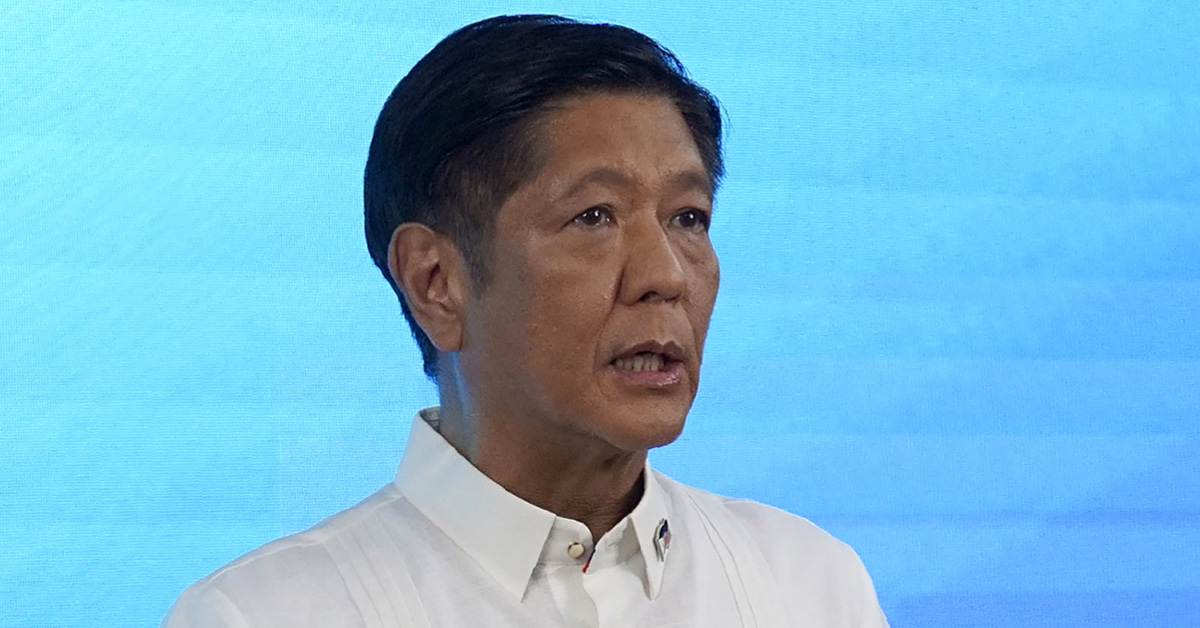The renaissance of the friendly and good bilateral relations between the Philippines and China despite existing differences is one of the legacies of the Duterte administration that yielded tangible and concrete benefits for both countries and their peoples.
The Philippines-China bilateral relations have not only improved under the Duterte administration but have been upgraded to a “comprehensive strategic cooperation.” Indeed, the ties between the two countries have improved dramatically, boosted, and deepened in friendship and mutual understanding under the Duterte presidency.
No doubt, Philippines-China relations have not only gained some new vitality and were reinvigorated under the Duterte administration but likewise yielded fruits and tangible benefits for both countries and their peoples.
The Philippines has benefited economically from the warming relationship with China, which is important as the country aims to have a strong bounce back from the economic devastation and recession caused by the pandemic.
China, thus far, remains the largest trading partner of the Philippines. It is now the country’s number one trading partner, number one import source, number two export market, a major foreign investor, and the second-largest source of tourists in the Philippines.
Such friendly and good-natured bilateral ties between the Philippines and China can be credited to President Duterte's independent foreign policy anchored on the fact that the Philippines is neither beholden nor a pawn to anyone, any country nor any superpowers.
Independent Foreign Policy
One of the many important lessons that incoming President-elect, Ferdinand “Bongbong” Marcos Jr., could learn from the Duterte Presidency is how the outgoing administration handled the dispute over the South China Sea (SCS) between the Philippines and China vis-à-vis other claimant states.
Another would be the effective balancing act of the Duterte administration between its relations with China and the United States (US) under the independent foreign policy, where, the Philippines is a friend to all and enemy to none.
Under the Duterte presidency, despite existing differences and conflicts of interests in the disputed waters of the SCS, China and the Philippines have forged pragmatic and amicable relations on issues and matters where there is already mutual understanding, friendship, and cooperation, like economics, trade, people-to-people, COVID-19 pandemic response cooperation and the like, which have boosted the mutual trust and confidence between the two nations.
Duterte “de-coupled” the SCS dispute from these areas that are not in conflict, to which the country has benefited a lot from the friendly and warm ties between the two countries.
Given the complexities and intricacies of the issues surrounding the disputed waters of the SCS, which are unlikely to go away any time soon, it is indeed more pragmatic and productive at the moment for both countries to put aside maritime disputes and focus their attentions and energies on areas of cooperation, which yield tangible benefits. At the end of the day, what matters most is the two countries' fundamental interests.
Under Duterte’s leadership, the Philippines was able to broaden the boundaries of its diplomacy beyond its traditional Western allies like the US. The country was able to build productive ties with countries like China who are willing to engage with the Philippines based on equality, mutual trust, and respect.
Duterte has spent six years repositioning the Philippines away from a staunch pro-American stance towards a neutral one pursuing an “independent foreign policy” to secure extra leeway to manoeuvre around and between China and the US while placing the country’s national interests above everything else.
It is a fact that this strategy and approach to international relations or geopolitics pursued by President Duterte is not an easy task and requires a “subtle and tactful balancing act and diplomacy” in a very volatile, challenging, and evolving regional security environment surrounding the SCS and the Asia/Indo-Pacific region these days.
But the legacy and gains generated for the country by Duterte’s independent foreign policy are worth emulating and pursuing under a Marcos presidency.
South China Sea (SCS) Dispute
Amid the escalating tensions in the SCS between China and the US, which is more apparent and projected in the Asia/Indo-Pacific region, where the US as part of its vital national interests, is also trying to consolidate it forces and presence in the region by reinvigorating its relationships with its traditional allies, the Philippines being one because of the 1951 Mutual Defense Treaty (MDT) between the Philippines and US, while wooing new possible alliances with countries in the Asia Pacific, while pushing for the rejuvenation and the possible institutionalization of “QUAD” or also known as the “Quadrilateral Security Dialogue,”- an informal strategic dialogue that is maintained by talks between member countries and that include US, Japan, Australia, and India, accompanied by the creation of AUKUS, - a trilateral security pact between the Anglo-Saxon countries of Australia, the United Kingdom (UK) and the US of which under the pact, the US and the UK will help Australia to acquire nuclear-powered submarines, to counter China, the Philippines, as it transition from a Duterte to a Marcos presidency, should continue to play a more constructive role.
The Philippines, as much as possible, must avoid at all costs of becoming a “dangerous flashpoint” in the competition and rivalry between the two superpowers as it is not in the country’s best interest. Amid the brewing Cold War between the two superpowers, countries like the Philippines should get out of the way, for it is not in the country’s national interest to serve as cannon fodder for either superpower.
The incoming Marcos administration and Filipinos, in general, must take cognizance that the country’s differences with China over the disputed waters of the SCS are just a tiny part of its bilateral relations with China. The Philippines should focus on positive aspects of that bilateral relations, which bring tangible economic benefits to the country, while actively resolving its differences with China on the disputed waters of the SCS through peaceful means, diplomacy, and dialogue at all levels possible.
The Philippines and China, and the rest of the claimant-states should also actively seek and explore joint bilateral and multilateral cooperation on fishery management, environmental cooperation, and oil and gas joint development and exploration, among others, which are important economic issues that might trigger potential conflicts if not addressed.
But then again, this might boost and trigger mutual trust and confidence between the two countries if given a chance, attention, and due consideration, which may serve as a “win-win” compromise that will not only benefit both nations but may trigger the resolution of disputes between the two over the disputed SCS.
Likewise, under the ASEAN mechanisms, the Philippines under a Marcos presidency should actively call and push for the conclusion of the negotiations of the “Code of Conduct (COC) in the SCS” and dialogue without the intervention of the US and other countries not party to the dispute with a great deal of ingenuity, firm resolve, and political will
An ASEAN-China COC on the SCS will create new forms of commonality and cooperation among the parties through dialogue and negotiations. The COC is vital as it provides a framework of rules, principles, norms, and decision-making procedures for the management and resolution of disputes among the claimant countries over the SCS. It is a viable diplomatic mechanism as it can provide international rules-based order for the SCS.
Indeed, the dispute over the SCS must be resolved by the claimant countries alone through bilateral relations and multilateralism within the ambit of ASEAN mechanisms like the COC because this is by far the most pragmatic and viable avenue to the easing of tensions over the disputed waters that is accepted by all parties concerned. The process of building consensus may prove to be difficult but is not impossible, while confrontation on issues surrounding the disputed waters indeed is self-defeating.
China and ASEAN member states have reached an unequivocal consensus that they will work together to safeguard peace and stability in the SCS through dialogue and consultations based on consensus.
The US and other countries not party to the dispute should refrain from intervening so as not to muddle and complicate the issues surrounding the SCS further. Likewise, China and claimant states like Vietnam, the Philippines, and others must take greater responsibility and behave constructively and responsibly as stakeholders.
Conclusion
In retrospect, Philippines-China relations under a Marcos presidency will be more vibrant and rock-solid.
In a phone conversation on 18 May, 2022, Philippine President-elect Ferdinand Romualdez “Bongbong” Marcos Jr. and Chinese President Xi Jinping had a productive discussion on the bilateral ties between the Philippines and China and regional development. President Xi congratulated Marcos again on his election as President of the Philippines. Xi called Marcos a builder, supporter, and promoter of the China-Philippines friendship.
Furthermore, Xi expressed that the two sides have effectively managed differences through dialogue and consultation, actively promoted practical cooperation in various fields, and achieved fruitful results in bilateral relations.
Xi also noted that the Chinese side will always give priority to the Philippines in its neighbourhood diplomacy, maintain continuity and stability in its friendly policy toward the Philippines, and will always provide active support and assistance to the Philippines in its economic and social development, noting that the two countries' development is rooted in good-neighbourly and friendly surroundings, and also in an Asian family featuring win-win cooperation.
The Chinese president hopes that the Philippines will continue to pursue an independent foreign policy. He also said that China is ready to step up exchanges of governance experience with the Philippines and expand and strengthen the existing cooperation with a focus on the national economy and people's welfare in such fields as infrastructure, agriculture, energy, and education, as well as the anti-COVID-19 fight and post-pandemic recovery, foster new growth areas, strengthen strategic communication and coordination over major international and regional issues, safeguard the sound momentum of peace and development in the region, and promote development and revitalization of the two countries and the region at large.
On another note, recalling his friendly exchanges with China, President-elect Marcos said that the Filipino people regard China as one of their most important partners.
Marcos also said that the new incoming administration would make Philippines-China relations a foreign policy priority and is ready to strengthen exchanges at various levels and deepen cooperation with China in economy, trade, infrastructure, energy, culture, and education.
Marcos also expressed his full expectations for better and more robust development of bilateral relations. He is also ready to work with the Chinese side to inject new and strong impetus into developing bilateral ties.
Marcos hopes that the relations between China and the Philippines will shift to a higher gear and lead to more fruitful and meaningful outcomes for the two countries under his administration.
In his phone conversation with his Chinese counterpart, President Xi, Marcos stressed not allowing the conflicts or difficulties the two countries have now to become historically important.
The Philippines president-elect also said that Xi assured him that China supports his stance on having an independent foreign policy and acknowledged the role his father, the late president Ferdinand Marcos, played in the opening of diplomatic relations between their two countries.
Without a doubt, the diplomatic and bilateral relations between the Philippines and China will be fruitful, vibrant, and bright.
The views expressed in this article are the author’s own and do not necessarily reflect those of The ASEAN Post.

